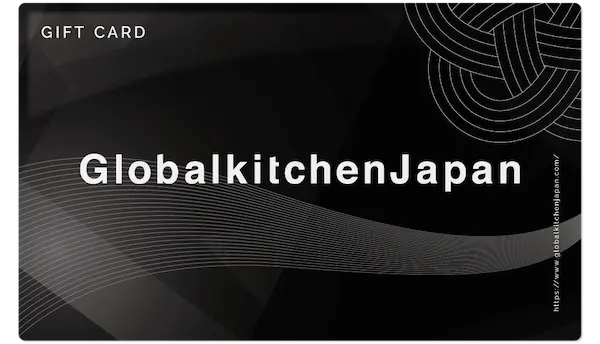The product we used:
Do you feel a draft?
Ladies and gentlemen, I have an announcement to make: It's starting to get chilly outside. Toss the shaved ice maker in the closet and take out your sukiyaki pot--the Iwachu Nambu Cast Iron Sukiyaki Pan purchased from us at Globalkitchen Japan--because it's time to light a fire in your bellies and hearts with warm food and family dinner-time havoc.
What is sukiyaki?

Sukiyaki is a popular kind of hot pot cooking in Japan. The name "sukiyaki" is derived from the word "suki" (meaning "to like" or "to enjoy") and "yaki" (meaning "grilled" or "cooked"). In other words, it's a soup where you throw in however much you like of whatever you like. Well, not just you, but all the people you plan to eat with, too. Usually that means beef, vegetables, and noodles. If you enjoy sleeping next to your wife with one eye open, feel free to throw in a slice a pizza.
Dry left-eye life not for you?
Good news. We at Globalkitchen Japan have stolen a recipe straight from grandma's book of battle-tested Fall and Winter food recipes to help you make a delicious pot of sukiyaki and save money on marriage counseling. It's guaranteed to please your wife and get your children biting and clawing each other.
Recipe

Sukiyaki Broth Ingredients
- Soy sauce: 5.1 fluid ounces (150ml)
- Mirin: 5.1 fluid ounces (150ml)
- Sugar: 6 tablespoons (60g)
- Water: 3.4 fluid ounces (100ml)
Sukiyaki Ingredients (Serves 3-4 people)
- Beef (for sukiyaki): 14-18 ounces (400-500g)
- Green onions: 2
- Onion: 1/2 (0.5)
- Shiitake mushrooms: 7-8
- Shimeji mushrooms: 3.5 ounces (100g)
- Grilled tofu: 1 block
- Shirataki noodles: 1 bag
- Sugar Snap Peas: 15-20
- Eggs: as many as you like
- Udon noodles: as much as you like
- Beef fat or vegetable oil: as much as your cardiologist approves of
Preparing the broth

First, let's create the sukiyaki broth by combining the soy sauce, mirin, water, and sugar in a pot--preferable a Iwachu Nambu Cast Iron Sukiyaki Pan purchased from us at Globalkitchen Japan--and bringing the mixture to a boil.
Once it has come to a boil, scum may rise to the surface of the broth. We didn't have any scum buildup when we cooked some sukiyaki for this article, but if you do, skim the scum. Unless your wife likes scum (and we know she does because she's married to you, wink wink nudge nudge).
Turn off the heat.
This completes the sukiyaki broth.
Preparing the ingredients



Boil some water in a pot and quickly blanch the shirataki noodles, then drain and set them aside.
You can use just green onions (cut into 1-1.5 cm diagonal slices), or you can also add onions (cut into 1-1.5 cm half-moon slices). Note that the cooked green onions absorb the broth more easily and can make the flavor richer, while onions do not absorb as much broth, resulting in a lighter, sweeter taste.
Next, remove the stems from the shiitake mushrooms and halve them, and gently separate the shimeji mushrooms.
Cut the grilled tofu and the parboiled shirataki noodles into bite-sized pieces of your desired length. After cutting the shirataki noodles, place them in a sieve and press out excess water to prevent them from becoming watery. Remove the stems and strings from the sugar snap peas.
Cooking Sukiyaki
Sear Green Onions

Once all the ingredients are ready, heat a pot and melt some beef fat (or use a small amount of vegetable oil if beef fat is unavailable).
Add some of the green onions and onions (leaving space for the beef to be added later), and lightly sear the green onions until they have some color (onions can remain as is).
Add Broth and Partially Cook Beef


Next, pour in the sukiyaki broth until it covers the bottom of the pot, and when it boils, add the beef slices one at a time. When the color changes, flip them and quickly brown both sides.
Coat with Beaten Egg

Break eggs into a small dish, beat them, and then dip the beef slices and other ingredients into the beaten eggs to coat them.
Add Everything to the Pot and Cook

Now, add everything back into the pot, leaving space for the beef slices, and cook them together.
Try to avoid overcooking the beef or sugar snap peas, though. Unless you like that sort of thing. Cook the other ingredients relatively slowly.
As soon as you can, grab some chopsticks and a hachimaki and prepare for battle. Poke and prod the meat and vegetables to get them just right and then snag your favored sukiyaki bits as soon as you feel they're cooked.
I cannot emphasize this enough: It is crucial you spot the ingredients before anybody else notices (try hiding that bit of beef under the mushrooms).
As needed, if the broth in the pot decreases or if the flavor feels too weak, add more sukiyaki broth. Conversely, if it becomes too concentrated, you can dilute it with water and sake. Splash hot broth in your brother's eyes to gain a competitive edge.
Not Full Yet? Add Udon.

Once your family has exhausted itself in battle over the sukiyaki pot, you can add boiled udon noodles and begin negotiating the terms of your treaty.
Pleasant Autumn Dreams

Congratulations, you have cooked and eaten grandma's battle-tested sukiyaki. With bellies full of sukiyaki--cooked with an Iwachu Nambu Cast Iron Sukiyaki Pan purchased from us at Globalkitchen Japan, right?--you and your family can enjoy blissful autumn dreams after a little dinner-time rough-housing.





